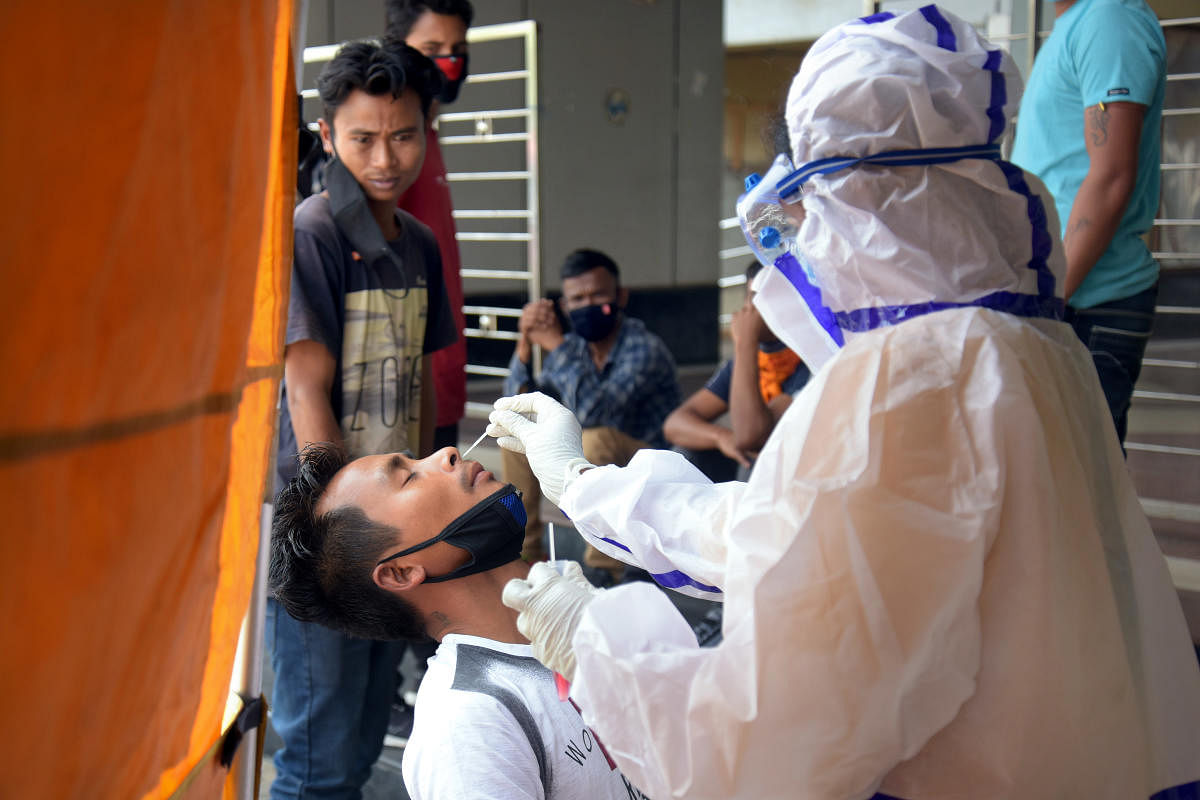
The emergence of three new Covid-19 clusters in the state over the last two weeks has reignited fears that a potential second wave is starting in the state, although members of the Technical Advisory Committee (TAC) said it was too early to tell.
On Tuesday, the discovery of a cluster of 103 infected individuals at an apartment complex in Bommanahalli, Bengaluru, substantially raised the number of cluster cases, following as it did, a cluster of 40 cases among out-of-state nursing students studying in Bengaluru last week, plus another cluster of 49 nursing students at Ullal in the first week of February.
However, Dr M K Sudarshan, Chairman of the TAC told DH that it was too early to tell if these clusters indicated the beginnings of a second wave, saying that further clarity would be shed by the results of the second sero-survey which is expected at the end of February. He was speaking ahead of a special media interaction to discuss vaccine-related issues.
In December, the TAC report had postulated that a second wave could potentially start between mid-January and March. “That statement was made based on historical data,” clarified Dr V Ravi, the noted virologist and a member of the TAC.
“If some cluster events cross a critical point then we will have a second wave. That is not to say that the emergence of these particular clusters means a second wave. A second wave occurs through a series of cluster events building up. It all depends on how individual citizens take this information and change their behavior,” he added.
Despite the emergence of the clusters, the daily Covid-19 update from the government has not shown a significant bump in the daily numbers. Dr Arundathi Chandrashekar, Director, State Surveillance Unit (SSU), said that the authorities are concerned about the clusters, but said that no cases were being missed out.
“We are conducting more targeted testing of people with symptoms while limiting broader testing in areas with large crowds. The daily target for testing is now 75,000. We are matching those targets,” she said.
The authorities, however, maintained that no clusters are being missed. Dr Thrilok Chandra, the new Commissioner of Health, correlated missed cases with an increased death toll. “This is what we saw in the middle of last year. Delayed diagnosis meant many people were ending up in hospitals in critical condition. The death toll was high. If such cases are being missed out now, we would see a similar increase in the number of critical cases in hospitals, which is not the case,” he said.